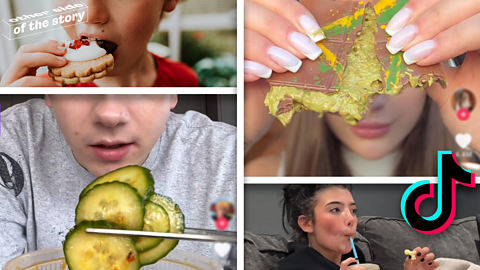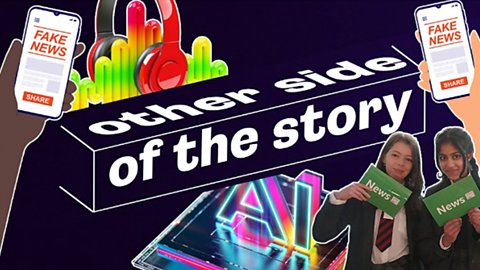There’s one true staple of the school day that never really changes… lunch time.
From sandwiches and wraps to fruit, yoghurts and cereal bars, many lunch boxes follow a similar theme. But with social media awash with so-called health and nutritional experts, with clickbait-style content, how do we know who to believe and what to take with a pinch of salt?
We take a look at just some of the nutrition claims made online, through the lens of the good old packed lunch.
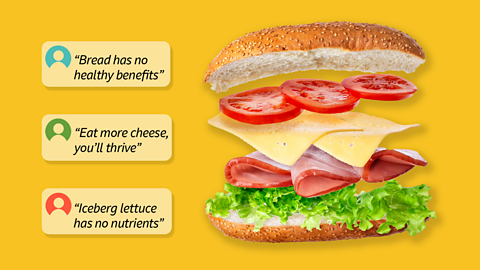
Bread
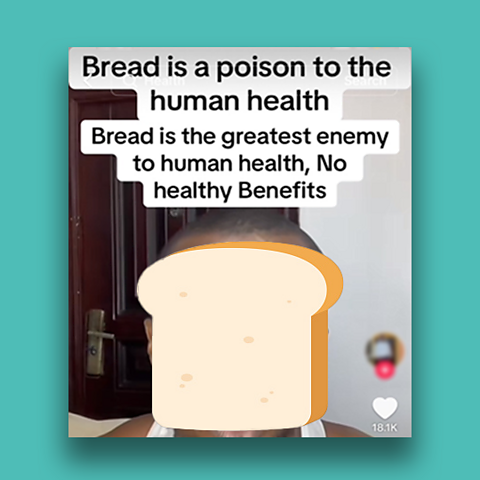
"Bread has no healthy benefits"
Sandwiches make an appearance in 41% of all lunchboxes, but many videos shared online claim that this lunchtime staple should be avoided.
According to the NHS Eat Well guide, starchy foods – such as potatoes, bread, rice, pasta, and cereals – should make up just over a third of the food you eat and they are the main source of a range of nutrients in our diet, containing fibre, calcium, iron and B vitamins.
The nutrients and health benefits of bread do vary, depending on the type of bread you choose. Not all bread is created equal. The NHS recommends that you opt for wholemeal, granary, brown or seeded varieties.
Factory-made bread is also classed as an ultra-processed food, due to the additional preservatives and emulsifiers, so it’s best to choose fresher alternatives that contain the least amount of ingredients.
If you're concerned that you have a wheat allergy or intolerance, speak to a GP.

Cheese
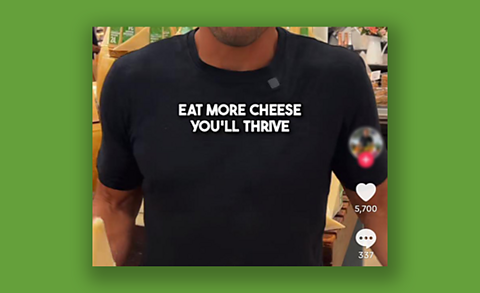
"Eat more cheese, you'll thrive"
Cheese and other dairy products are great sources of protein, calcium and some vitamins too, forming part of a healthy balanced diet. However, the fat content of these products can vary a lot and for older children and adults, eating too much fat can lead to various health issues.
In the UK, cheddar is the most popular cheese and a common filling in many sandwiches, but there can be more salt in a portion of cheddar than a packet of crisps. When choosing which cheese to go for, the NHS recommends going for a reduced-fat option. Even though the reduced-fat version isn’t low in salt or fat, it contains 30 per cent less fat than the standard variety.

Lettuce
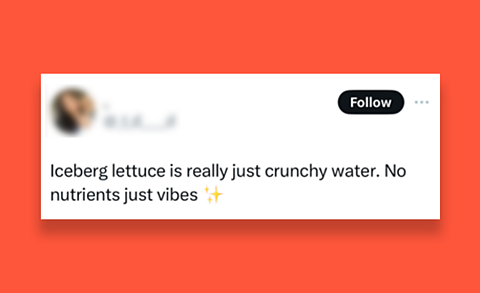
"Iceberg lettuce has no nutrients"
This isn’t entirely true, although research suggests that iceberg lettuce does contain far fewer nutrients than its leafy counterparts. Data from the Centers for Disease Control and Prevention in the US rate the nutrient density score of iceberg lettuce as 18.28, compared to a score of 70.73 for leaf lettuce and 63.48 for romaine lettuce.
Don’t be too disheartened though, the iceberg lettuce does still contain small amounts of minerals and vitamins like calcium, vitamin C, vitamin K and iron. But when compared to protein-rich spinach, research from the US Department of Agriculture indicates that spinach packs over eight times more vitamin K and over six times more vitamin A than iceberg.

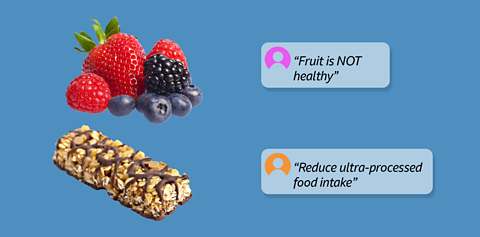
Fruit
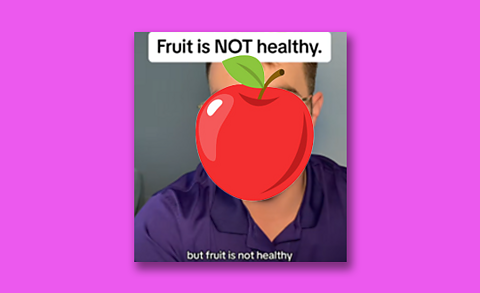
"Fruit is not healthy"
Videos from many content creators online claim that fruit is unhealthy, due to the natural sugar content. This isn’t true.
Fruit does contain natural sugar, but there are significant health benefits to getting at least five portions of a variety of fruit and vegetables every day. They're an excellent source of fibre, vitamins and minerals, including vitamin C and potassium.
We do not need to cut down on the sugars that naturally occur in fruit and veg.

Ultra-processed food
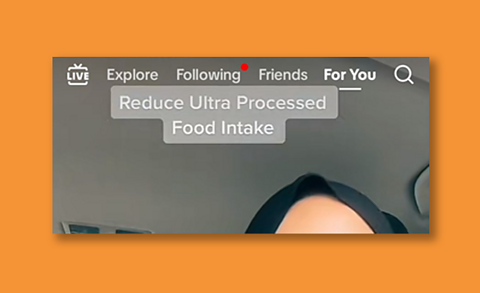
"Reduce your ultra-processed food intake"
Ultra-processed foods that you might find in a packed lunch include products such as crisps, chocolate, biscuits, fruit yoghurts, fizzy drinks and mass-produced bread. These products often contain additives, emulsifiers, preservatives and colourants; ingredients which you wouldn’t find in your standard kitchen cupboard.
A survey by the universities of Cambridge and Bristol found that two-thirds of teenager’s diets are made up from ultra-processed foods.
Such food has regularly been associated with obesity, which itself is tied to a lot of other health issues.

Food for thought
- Make sure you only consider nutrition and health advice from trusted sources and professionals.
- If the advice given contrasts with what you’ve learnt in the past, it could be misinformation and should be taken with caution.
- Don’t alter your eating habits unless you’ve carried out your research or spoken to a health professional.
- If you're seeing lots of similar claims on your feed, you could be in your own echo chamber. In this case it's worth exploring alternative points of view and opinions in order to get the full picture. You could find videos from different creators or check the comments under a post to see whether others are disagreeing with the advice given.
- Be mindful of clickbait and personal success stories, as advice that’s worked for one person will likely not work for everyone.
This article was updated in January 2025.

Not sure if the news you’re seeing on social media is true or false? Can you always tell if the things you see online are real or fake? Learn how to get the other side of the story with our quizzes, videos and explainers.
